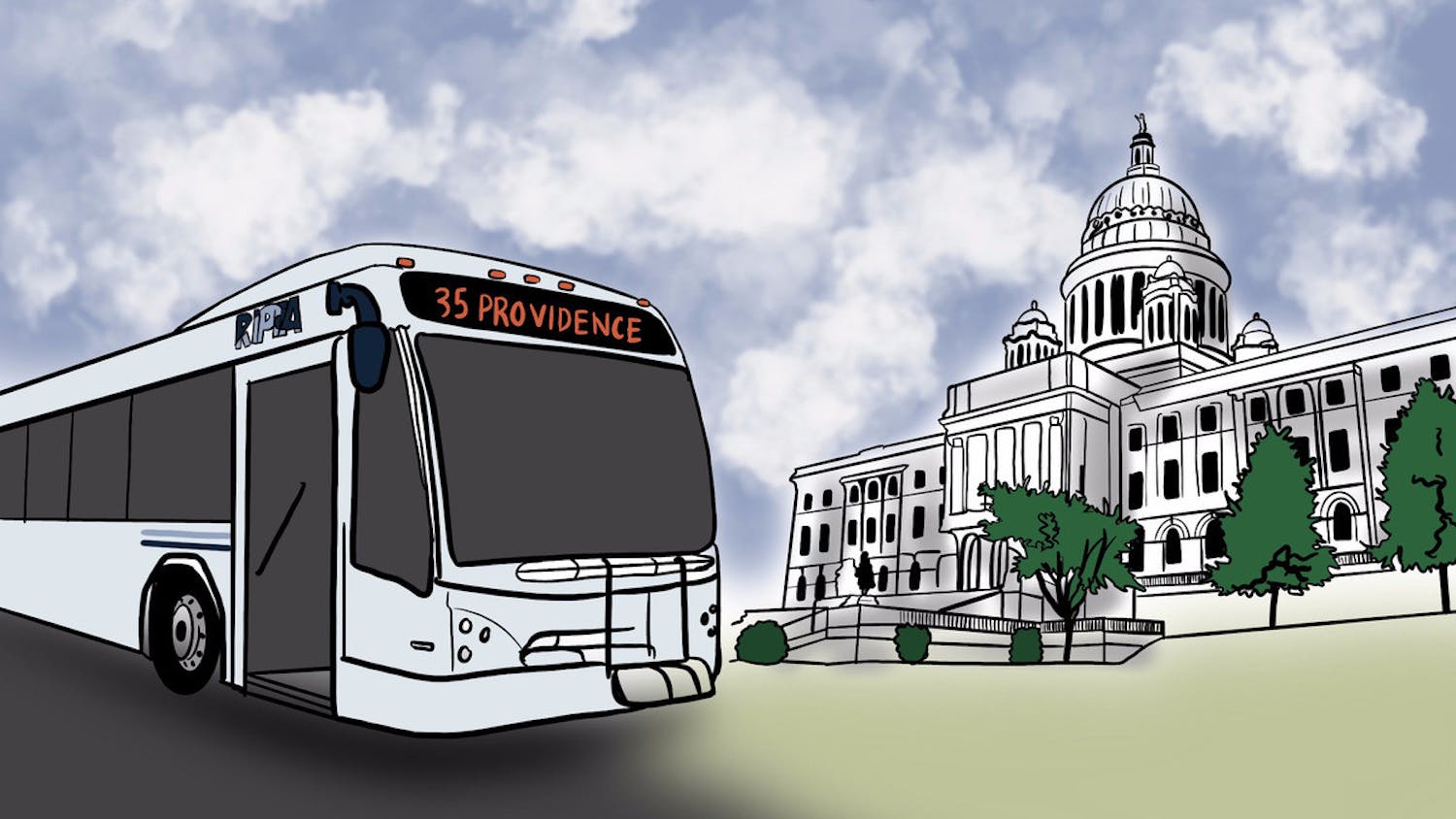View Larger Map
It's been a long, hard winter for local businesses.
As the economy continues to unravel, shop owners on the East Side have been forced to dramatically alter their business strategies to stay afloat. With sales significantly down from this time last year and limited cash available for advertising, longtime vendors on College Hill have marked down merchandise, cut back on hours and introduced creative promotional schemes.
It's no secret that consumer spending is down - the Pew Research Center reported in February that a vast majority of Americans have recently made changes in their shopping habits. Many local store owners say their single greatest sales challenge is just getting passers-by to enter their stores.
Jagdish Sachdev, owner of Spectrum India at 252 Thayer St., said that despite a lack of customers lately, his store offers "some of the best prices and deals" anywhere. So, though he cannot afford to advertise locally, Sachdev has tried to attract shoppers by improving his store's window displays.
The large, brightly colored signs in the store's windows advertise some of the store's promotions, including a "Name Your Price" sale.
"This year, we are not looking to make a profit," Sachdev said. "We are looking to stay in business."
Many businesses around College Hill have not been so fortunate. In the last year, familiar locations such as Spike's Junkyard Dogs and Cafe Roba Dolce have closed their doors, unable to keep up with high Thayer Street rents. The windows of a former Thayer sandwich shop, Geoff's, are now papered over, while the Wickenden Street sex shop Miko Exoticwear went under last summer.
Few new businesses have opened up to replace them and those owners lucky enough to still be in business have been forced to think of new ways to attract customers.
Like Sachdev, local businessman Michael Sherman, who has owned the vintage apparel store The 1793 Shoppe for the last three years, has aimed to make shopping a more enjoyable experience for his customers.
He estimated that December 2008 sales at his Steeple Street store were down 90 percent from the same time in the previous year. Since then, he has marked down all of his merchandise in an effort to appeal to customers.
In February, Sherman teamed up with the owners of Curiosities - a Wickenden antique shop that used to be housed on Angell Street - for a "Save Our Stores" event at his store. Nearly 70 people paid a $5 cover charge for the refreshments and entertainment, he said, and the owners split the profits.
The event was "very successful" because many of the attendees bought merchandise, Sherman added.
Yet Sherman said he has seen very few repeat customers since the event, and with no money for advertising, he finds it increasingly difficult to attract customers to his second-floor store.
Ann Dusseault, who has co-owned Pie in the Sky at 225 Thayer St. for 15 years, has also found it difficult to make her store appeal to shoppers lately. A jewelry and gift shop, Pie in the Sky has seen significantly fewer customers in recent months, Dusseault said. To make matters worse, her "regulars" are also spending less.
"I especially saw it at Christmas," she said, adding that the more expensive items in the store, including jewelry, are not selling at the rates they used to.
"It's a battle," she said, estimating that sales are down nearly 50 percent from last year.
But Dusseault realizes that she is not the only one affected by the economic downturn. Because she is barely able to make rent payments, she is no longer ordering any new merchandise - yet vendors are now frequently calling for her business, complaining that their companies are suffering, too.
Like Sachdev and Sherman, Dusseault has foregone most advertising, simply because any extra money needs to be put toward paying the rent.
As for the future, Dusseault too has become increasingly creative in her sales strategies. She recently joined studentrate.com, a Web site that offers students discounts and promotions at local and national stores. In addition, she has begun making her own merchandise, and has even "moved stuff around" in an effort to mix up the store's offerings.
Sachdev has been equally creative in his effort to make shopping at Spectrum India a "memorable experience." This week, he debuted a series of promotions involving a different discount for each weekday - with a catch. Depending on the day, customers will have to perform a different activity or challenge in order to receive the sale.
As part of the "Moody Monday Blues," shoppers can sing a blues song to receive an extra 10 percent off CDs and DVDs. On "Terrible Tuesdays" customers are encouraged to imitate a toddler throwing a tantrum. If they do, the will receive an extra 10 percent off toys, books and games.
Wednesday's promotion invites shoppers to do a "soft shoe dance" for a footwear discount, and if customers tell a "deep, dark secret" on Thursdays, they will receive free incense with the purchase of candles or essential oils.
Though the sale might be out of the ordinary, Sachdev said he wants customers to "have fun" in his store despite the difficult economic times.
"I've been through six recessions, and I've managed to survive," he said.
With his options limited, Sherman said he plans to hold another gathering similar to the "S.O.S" event - most likely a fashion show in April.
But not all business owners think they have the energy to compete in a prolonged recession.
Bryan Creighton, owner of Morrison Office Supply, Inc. at 215 Thayer St., said his business went into "survival mode" about a year ago. Since then, Creighton has adjusted purchasing, bringing less new merchandise into his store. While the strategy has allowed him to "pay this month's rent," he said it does not appear that the business can endure much longer.
A business like his would need new, younger management - "fresh blood" - to survive, said Creighton, who has run the store for 20 years.
While he said that the independent stationery and office supply industry was in decline "even then," financial concerns have become increasingly severe in recent months. He said it was "very possible" that he would soon sell the storefront to local restauranteur Andy Mitrelis, who told The Herald last month that he plans to open a burger restaurant where Yang's, a boutique store that closed last summer, once was.
Sherman said he was concerned about the number of local business owners who were being forced to close their doors.
"When you lose small stores, part of the character of the city dies," he said.
Help on the way?
At a press conference Monday, President Obama emphasized the importance of small businesses, which he called the "heart of the American economy." Obama credited small businesses with creating 70 percent of the new jobs in the past decade, and introduced a variety of measures intended to increase lending.
The American Reinvestment and Recovery Act of 2009, known as the "stimulus bill," has made provisions to help small business owners, said Mark Hayward, Rhode Island district director for the United States Small Business Administration.
Under the legislation, the SBA, a federal agency, will drop both its borrower and lender fees on small business loans, and will guarantee banks up to 90 percent of the value of the loan.
The agency's main interests, Hayward said, are the needs of small business owners, providing financial assistance and counseling to small businesses. Hayward said that despite the difficulties local businesses are encountering, the SBA is "actually in a good spot."
"Our goal is to encourage and entice lenders," Hayward said, adding that businesses "are in need of lines of credit or something to get through."
ADVERTISEMENT




